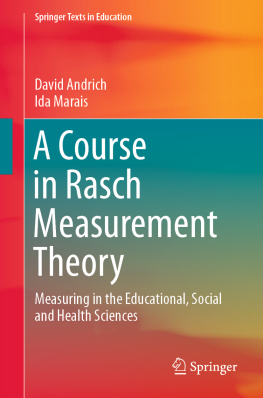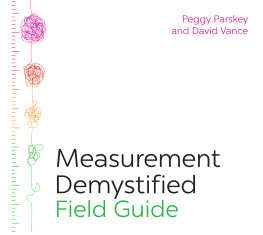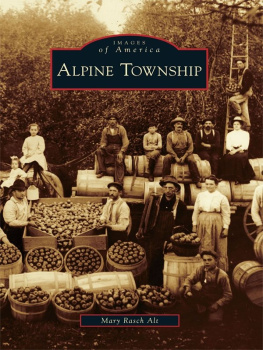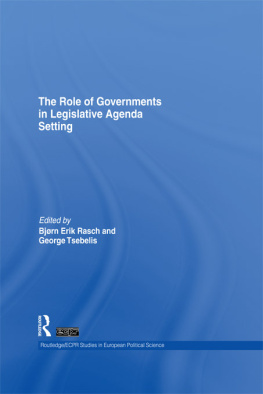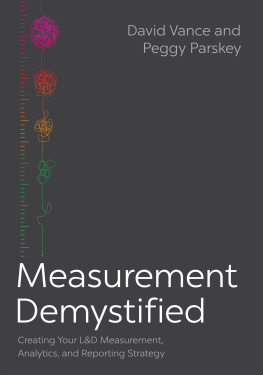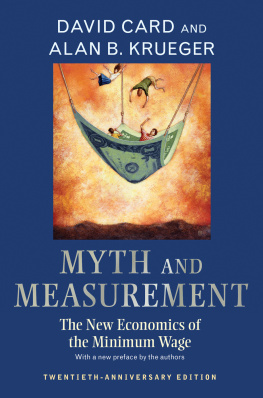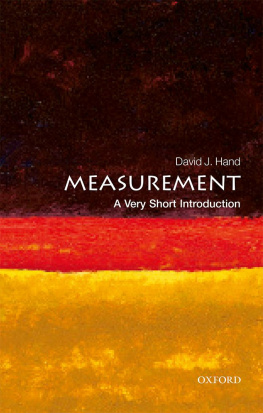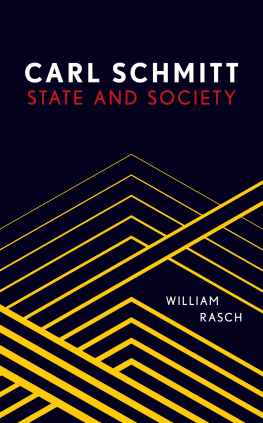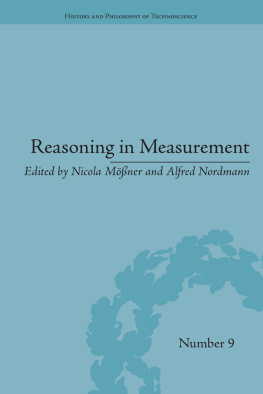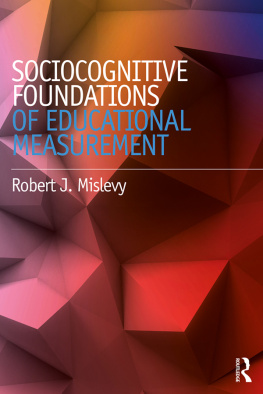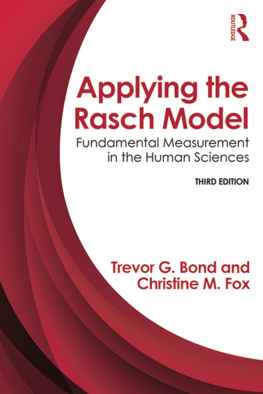David Andrich - A Course in Rasch Measurement Theory
Here you can read online David Andrich - A Course in Rasch Measurement Theory full text of the book (entire story) in english for free. Download pdf and epub, get meaning, cover and reviews about this ebook. year: 0, publisher: Springer Singapore, genre: Children. Description of the work, (preface) as well as reviews are available. Best literature library LitArk.com created for fans of good reading and offers a wide selection of genres:
Romance novel
Science fiction
Adventure
Detective
Science
History
Home and family
Prose
Art
Politics
Computer
Non-fiction
Religion
Business
Children
Humor
Choose a favorite category and find really read worthwhile books. Enjoy immersion in the world of imagination, feel the emotions of the characters or learn something new for yourself, make an fascinating discovery.
- Book:A Course in Rasch Measurement Theory
- Author:
- Publisher:Springer Singapore
- Genre:
- Year:0
- Rating:5 / 5
- Favourites:Add to favourites
- Your mark:
- 100
- 1
- 2
- 3
- 4
- 5
A Course in Rasch Measurement Theory: summary, description and annotation
We offer to read an annotation, description, summary or preface (depends on what the author of the book "A Course in Rasch Measurement Theory" wrote himself). If you haven't found the necessary information about the book — write in the comments, we will try to find it.
A Course in Rasch Measurement Theory — read online for free the complete book (whole text) full work
Below is the text of the book, divided by pages. System saving the place of the last page read, allows you to conveniently read the book "A Course in Rasch Measurement Theory" online for free, without having to search again every time where you left off. Put a bookmark, and you can go to the page where you finished reading at any time.
Font size:
Interval:
Bookmark:
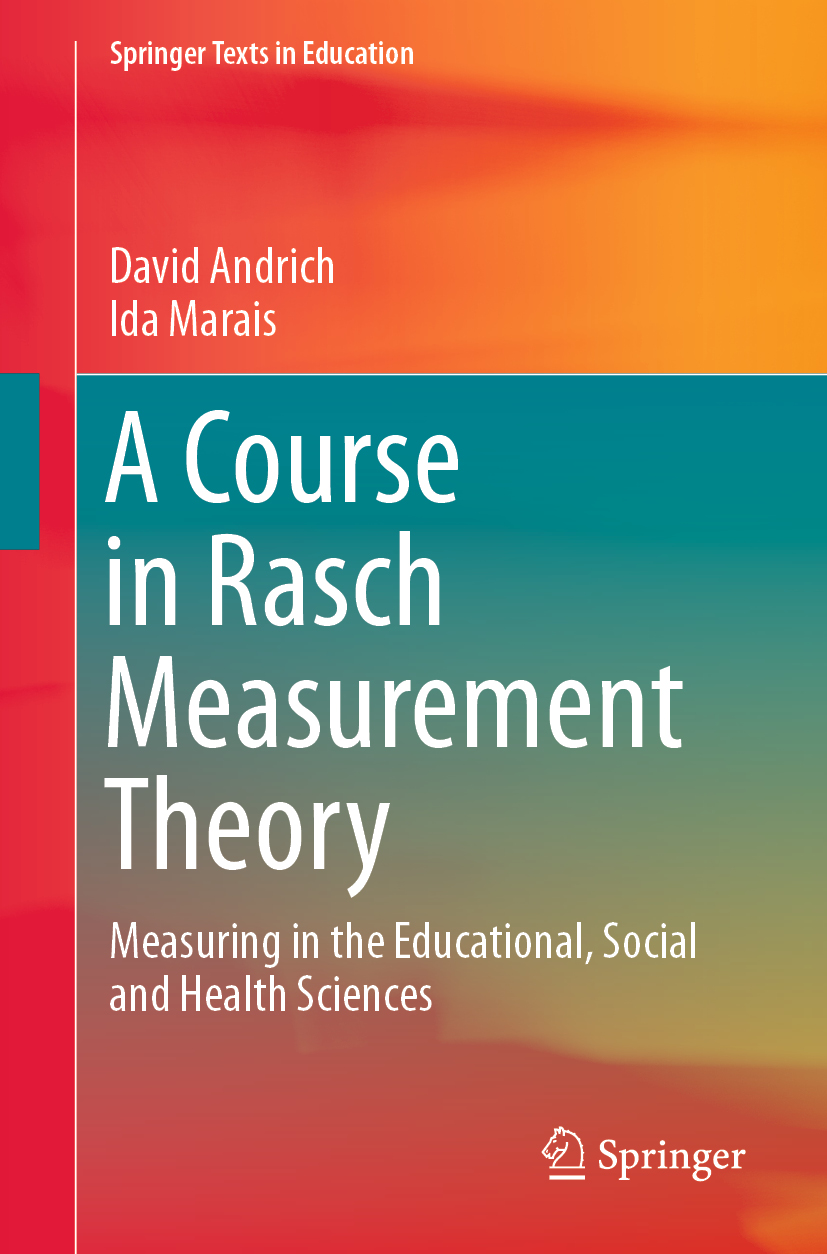
Springer Texts in Education delivers high-quality instructional content for graduates and advanced graduates in all areas of Education and Educational Research. The textbook series is comprised of self-contained books with a broad and comprehensive coverage that are suitable for class as well as for individual self-study. All texts are authored by established experts in their fields and offer a solid methodological background, accompanied by pedagogical materials to serve students such as practical examples, exercises, case studies etc. Textbooks published in the Springer Texts in Education series are addressed to graduate and advanced graduate students, but also to researchers as important resources for their education, knowledge and teaching. Please contact Natalie Rieborn at textbooks.education@springer.com for queries or to submit your book proposal.
More information about this series at http://www.springer.com/series/13812

This Springer imprint is published by the registered company Springer Nature Singapore Pte Ltd.
The registered company address is: 152 Beach Road, #21-01/04 Gateway East, Singapore 189721, Singapore
This book has arisen from two postgraduate level courses in Rasch measurement theory that have been taught both online and in intensive mode for over two decades at Murdoch University and The University of Western Australia. The theory is generally applied in the fields of education, psychology, sociology, marketing and health outcomes to create measures of social constructs. Social measurement often begins with assessments in ordered categories, with two categories being a special case. To increase their reliability and validity, instruments are composed of multiple, distinct items which assess the same variable. Rasch measurement theory is used to assess the degree to which the design and administration of the instrument are successful and to diagnose problems which need correcting. Following confirmation that an instrument is working as required, persons may be measured on a linear scale with an arbitrary unit and arbitrary origin.
The main audiences for the book are graduate students and professionals who are engaged in social measurement. Therefore, the emphasis of course is on first principles of both the theory and its applications. Because software is available to carry out analyses of real data, small hand-worked examples are presented in the book. The software used in the analysed examples, which is helpful in working through the text, is RUMM2030 (Rasch unidimensional models for measurement). Although the first principles are emphasized, much of the course is based on research by the two authors and their colleagues.
The distinctive feature of Rasch measurement theory is that the model studied in this book arises independently of any datait is based on the requirement of invariant comparisons of objects with respect to instruments within a specified frame of reference and vice versa. This is a feature of all measurement. Deviations of the data from the model are taken as anomalies to be explained and the instrument improved. The approach taken is to provide the researcher with confidence to be in control of the analysis and interpretation of data, and to make professional rather than primarily statistical decisions. Because statistical principles are necessarily involved, reviews of the necessary statistics are provided in Appendix D.
Graduates and professionals are likely to encounter classical test theory. Therefore, introductory chapters review the elements of this theory. The perspective on the relationship between Rasch measurement theory and classical test theory is that the former is an elaboration of the ideals of the latter, not that they are entirely in conflict. However, because the centrality of invariance as a requirement for measurement had been articulated by two giants of social measurement, L. L. Thurstone and L. Guttman, reference is made to their work. In particular, Thurstone had articulated the requirements of invariance in almost identical terms as G. Rasch, but did not express it in terms of a mathematical equation, and the elementary Guttman design which is introduced in the early chapters, is shown to be a deterministic form of the Rasch model. The distinctive contribution of Rasch compared to that of Thurstone and Guttman is that the model studied in this book has built into it the principle of invariance and is immediately probabilistic. Therefore, the deviation of data from the model implies some kind of deviation from invariance and measurement. Together with the relationships shown with classical test theory, the book provides a unified theme for approaches to social measurement, rather than as a compendium of techniques.
Finally, the book stresses that the requirement of invariance, and its expression in the Rasch model, is necessary, but not sufficient to ensure sound measurement. All the principles of measurement, of experimental design and of statistical inference must be applied in the process of constructing instruments that provide invariance of comparisons and reliable and valid measurement. Indeed, the explicit requirements of invariance in the Rasch model can at times appear more demanding of the data than do other theories and approaches.
RUMM2030, which is a Windows, menu-driven program, has been written primarily by Barry Sheridan. He has written the program so that it permits an efficient exposition of the theory and the approach emphasized in the book for data analyses. Alan Lyne contributed to the original programming and further contributions were made by Guanzhong Luo. Irene Styles has been a colleague both in research and in improving the courses on which this book is based. Many students have also provided feedback, including Sonia Sappl who has contributed to the editing of the book. Natalie Carmody has administered the courses for more than a decade and helped prepare the book. The first author also acknowledges the deep influence of a year of study with the Danish mathematician and statistician Georg Rasch in the 1970s when Rasch had turned to the philosophy of measurement. The first author also acknowledges the support of the Australian Research Council for a range of grants over more than 30 years that have helped him conduct research into Rasch measurement theory.
Font size:
Interval:
Bookmark:
Similar books «A Course in Rasch Measurement Theory»
Look at similar books to A Course in Rasch Measurement Theory. We have selected literature similar in name and meaning in the hope of providing readers with more options to find new, interesting, not yet read works.
Discussion, reviews of the book A Course in Rasch Measurement Theory and just readers' own opinions. Leave your comments, write what you think about the work, its meaning or the main characters. Specify what exactly you liked and what you didn't like, and why you think so.

